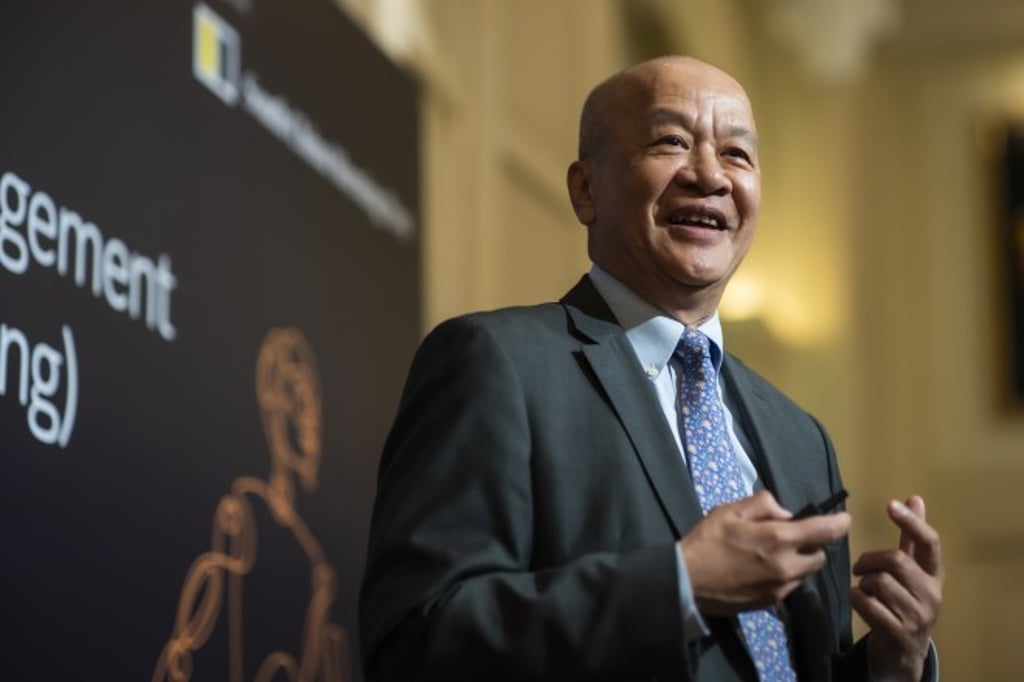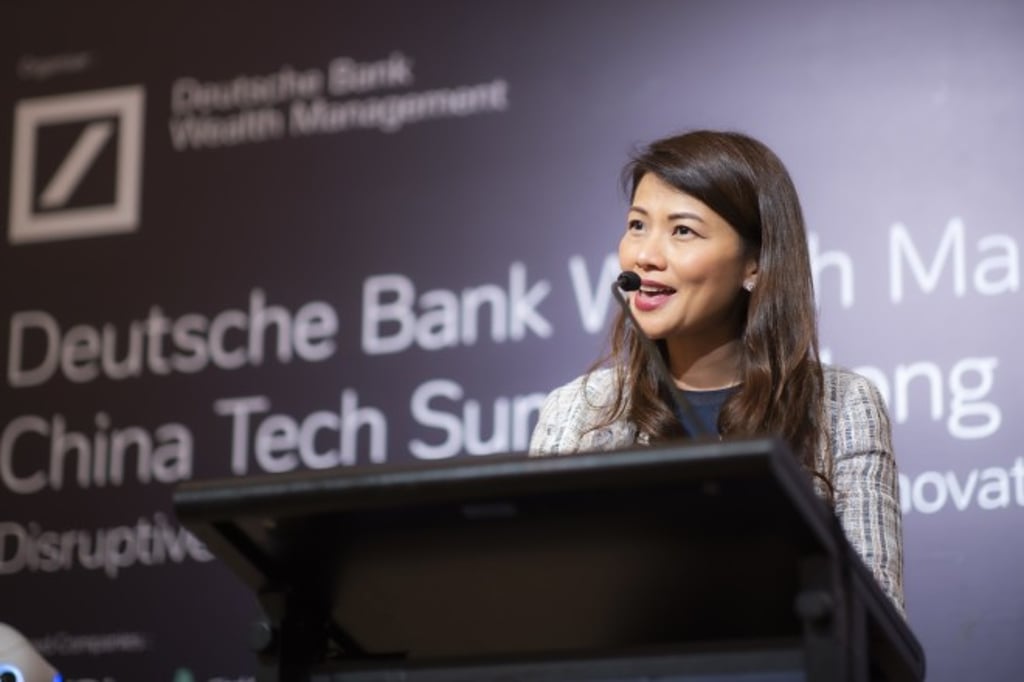Relishing the shock of the new
Transformative technology like artificial intelligence, virtual reality and the internet of things offer vast start-up opportunities in our region.

[Sponsored Article]
The impact of artificial intelligence, virtual reality and other transformative new technologies on areas as diverse as customer relations, predicting how school pupils will fare in exams, or helping mainland start-ups build a competitive advantage were among topics covered at the Deutsche Bank Wealth Management China Tech Summit in Hong Kong.
Held at the Peninsula hotel on May 20, Deutsche Bank (DB) Wealth Management joined SCMP’s Morning Studio (MS) to bring exclusive insights from renowned mainland Chinese tech leaders and Hong Kong’s most innovative home-grown tech entrepreneurs to more than 100 attending ultrahigh-net-worth investors.
Tech leaders, Find Solution Ai, Steam Building and Win Win were exhibitors at the event. The latter surprised attendees with showcasing “Pepper”, a service robot that uses technology, AI and chatbot solution for his operations.
Launched in October 2018, MS is SCMP’s one-stop solution for partners seeking to reach a prime audience with branded content and events, tasked with securing speakers, arranging exhibition booths and logistics, and developing topics and questions for the summit. Elsie Cheung, chief operating officer at SCMP, was one of two who delivered the opening remarks.
The event, named “China Tech Summit – Disruptive Technology; Boundless Innovation”, was headlined by Savio Kwan, the former chief operating officer of Alibaba, who now leads his own consulting firm, A&K; and Peter Davies, the head of international business development at Chinese ride-hailing giant DiDi. DB Wealth Management head of north Asia Kanas Chan opened proceedings and introduced a number of innovations that the investment bank will be rolling out soon.

When asked about DB’s Innovation Labs, Chan replied, “Our latest was launched in Singapore last November. Asia-Pacific is undoubtedly a hotbed for tech start-ups, particularly in fintech, and DB offers a business-centric and stable platform for these innovators to develop applications that can be applied and iterated rapidly for the market. The lab in Singapore joins our existing global network of labs located in Palo Alto, New York, London and Berlin. To date, DB has teamed up with more than 3,200 start-ups and delivered solutions across the banking spectrum, including in wealth management.”

Meanwhile, Hong Kong’s tech entrepreneurs should have everyone excited for the city’s future as a start-up hub, and after hearing from Dr Andrew Ma and Viola Lam, they would be remiss not to.
Ma, the director of training company Steam Building, wants to challenge the notion that AI will have a negative impact on people’s lives: “Many people have heard of AI, and think it is going to take all their jobs away. But when I ask them, do you know the difference between machine learning and deep learning, most people cannot explain these fundamental concepts. People often fear things they don’t understand.”
“In this age, you do not want to fall behind and lose your customers to agile competitors who are deploying technologies that you are afraid of,” Ma said.
Likewise, he believes humans will hold unique advantages in two areas where computers are no match: relationships and creativity. While some would point to examples of AI composing music as evidence that humanity is even losing out in the latter realm, Ma counters, “AI can put together lyrics from chart toppers, but their music has no soul.”
Steam Building also trains corporations to shift their competencies away from the mechanical and routine into areas where compassion and creativity are emphasised.
AI is not just a game changer for businesses, either – schools are another sector that will see transformative changes in the coming years thanks to advanced computer intelligence. Examinations, like it or not, are a way of life for Hong Kong students and their parents.
Schools and educators have long sought methods to improve educational outcomes for both gifted and underperforming children without compromising the overall student body: enter Find Solution Ai.
Led by Viola Lam, Find Solution’s founder and chief executive officer, the start-up has garnered numerous awards for how it is deploying AI to improve student learning in Hong Kong.
“Through past exam results and advanced monitoring of a child’s facial expressions during an examination, Find Solution can successfully predict exam scores for pupils,” Lam explains.
Why is this important? Lam said Find Solution’s 4 Little Trees system enables teachers and parents to pin down what questions and subjects are posing problems for struggling students.
It allows schools to adjust academic materials and tests to interest gifted children, who are often bored by tasks that do not challenge them. Find Solution’s academic solutions are now deployed in almost 150 schools in the territory, and it has since expanded to Japan, which also has a strong examination-centred academic culture.
The summit concluded in a panel discussion moderated by SCMP technology editor Chua Kong Ho. When asked what it takes for an entrepreneur to succeed in China, Peter Davies was to the point: “You have to display fanatical devotion to your ideas, your model, well beyond the point others will have given up.”
Savio Kwan added that having a dream that goes beyond the individual is essential for a tech entrepreneur looking to make it in China.
Both Kwan and Davies agreed that knowing your customer is crucial to success, a truism that applies anywhere, not just China. Davies said, “This is how DiDi out-hustled Uber in China; they attempted to use their global app in the mainland, while DiDi focused on tailoring their ride-sharing app to attract Chinese customers. We simply understood the mainland market better than they did.”